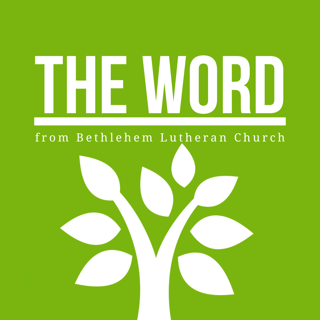Between Sundays for Week of January 30, 2023
Jesus begins his Sermon on the Mount with a word of blessing. He looks out at the crowds who have gathered to follow him – people from all different lands, people who are sick, people with disabilities, people of all sorts – and calls them blessed. Looking at them, Jesus sees a vision of the kingdom of God on earth, a kingdom that includes each and every one of them – and of us.
Pastor Hoffman imagines that when Jesus speaks these pronouncements of blessing, it’s as though he’s saying – you over there, who are in mourning. I see you. You will find the comfort you seek in God’s kingdom. You over there, who feel defeated, who wonder whether your life has any meaning and purpose. I see you. You have a place in God’s kingdom. You over there, who are working tirelessly to speak out against injustice, who are heartbroken over yet another black man’s murder, your efforts are not in vain. You over there, whose cup is empty and well of compassion has run dry, you will be filled. You are blessed.
With these words, with this sermon, Jesus establishes who is worthy to receive God’s blessing. And the short answer is: everyone!
God’s blessing does not depend on who we are or what we have. God’s blessing does not depend on our circumstances. God’s blessing is about being included in God’s kingdom. This is good news for the crowds of people that clamored to see Jesus early in his ministry, who probably felt dismissed and disregarded by the world. And it’s good news for us, too.
What do we do with the gift that God has chosen to love and bless each and every one of us? The prophet Micah tells us in our first reading: Do justice, love kindness and walk humbly with our God. Said another way, follow Jesus’ lead. Share God’s love to all people – just as Jesus did. And if you think it’s too tall of an order, remember that last part of the phrase: walk humbly with God. This is not our work, to be done alone. This is God’s work – in us and through us.
In other words, we are blessed by God to be a blessing for others. The blessings we receive in worship: forgiveness and mercy around the font. Encouragement in the holy Scriptures. A place at God’s table. Grace and sustenance in the meal. God’s presence in our midst. These are the blessings we share with others. The blessing of forgiveness. The blessing of belonging. The blessing of being remembered. The blessing of receiving food and sustenance. The blessing of showing up for one another. The blessing of seeing and being seen. Sharing our blessing is how God’s kingdom becomes a visible reality.
Rejoice and be glad, dear ones. For ours is the kingdom of God. Amen
P.S. On Sunday after worship, we heard about the ministry of Saints Place from its founder, Colleen Knauf. (You can watch the recording here!) Organizations like Saints Place help us share God’s blessing – in this case, the blessing of a warm welcome and tangible resources for those who are new to this country. Learn more about Saints Place here, and learn more about the stories of some of the refugees resettled in the Rochester area through the “See Their Stories” campaign.
Jesus begins the Sermon on the Mount with words of blessing, that we know collectively as the Beatitudes. They are not an exhaustive list, but a reminder to each and every one of us: no matter your circumstances, no matter what you have done or left undone, you are blessed. You have a place in God’s coming kingdom.
This was good news for the crowd of people that clamored to see and hear and be touched by Jesus early in his ministry. People who didn’t feel particularly blessed, who were dismissed and disregarded by the worldly powers. And it’s good news for us. God’s blessing is upon us. How will you share this good news?
Ponderings
January 31 is the birthday of Thomas Merton, born in Prades, France, in 1915. While a student at Columbia University, he decided to write his master’s thesis on William Blake, and found himself deeply influenced by him. After a few more years of study, he converted to Christianity, and in 1941 entered a Trappist abbey in Kentucky, where he lived for most of his life. He wrote in his diary: “Going to the Trappists is exciting. I return to the idea again and again: ‘Give up everything, give up everything!’” His superior at the monastery noticed his talent for writing, and encouraged him to pursue it; Merton wrote more than 70 books over the course of his lifetime, along with 2,000 poems and many essays and lectures. Many of his books combine theology, politics, and interreligious dialogue, and he’s perhaps best known today for his spiritual autobiography, The Seven Storey Mountain, which ends with the line: Sit finis libri, non finis quaerendi (“Here ends the book, but not the searching”).




